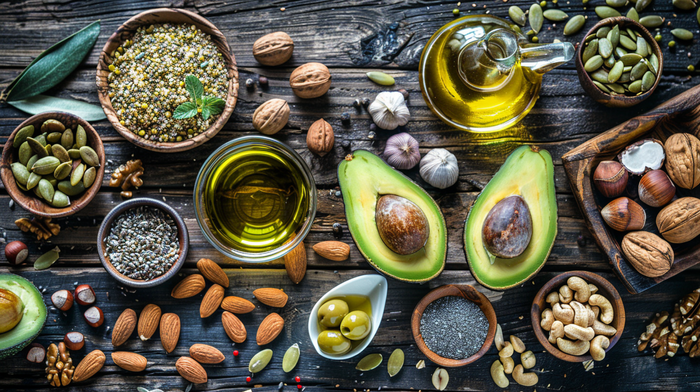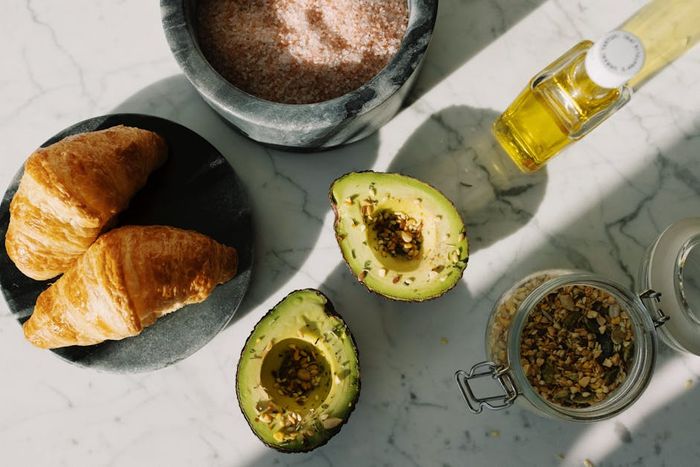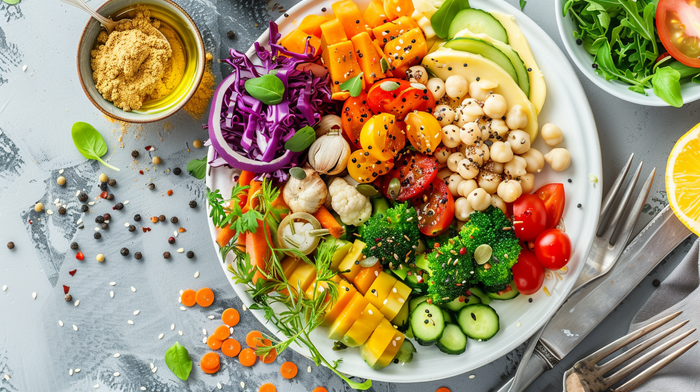Planning a diet? Here are the fats you should include in it

In the world of dietetics, new trends and recommendations are constantly emerging to improve our health and well-being. One element that is often misunderstood and wrongly demonized is fats. In fact, the right choice of dietary fats is crucial not only for maintaining health, but also for achieving weight loss or muscle mass building goals. In this article, we will take a closer look at which fats should be in your diet and why they are so important.
Why are fats important?
Fats perform many important functions in our bodies. They are a source of energy, support the production of certain hormones, help in the absorption of fat-soluble vitamins such as A, D, E and K, and are essential for the health of our skin and hair. What's more, fats can contribute to the feeling of satiety after a meal, which is especially important for weight control.
Types of fats
There are several types of fats, including saturated, monounsaturated and polyunsaturated. Each plays different roles in the diet and has different effects on our health.
- Saturated fats: are mainly found in animal products such as meat, butter and cheese. Their excessive consumption can contribute to an increase in the level of bad LDL cholesterol in the body.
- Monounsaturated fats: are primarily present in olive oil, avocados or nuts. They are recommended as part of a healthy diet due to their positive effect on cholesterol levels.
- Polyunsaturated fats: contain omega-3 and omega-6 essential fatty acids, which must be supplied with food. They are found in fish, flax seeds and walnuts, among others.
Which fats to choose?
When choosing fats for your diet, it is worth focusing primarily on monounsaturated and polyunsaturated ones. Here are some products rich in these healthy fats that are worth including in your menu.

- Olive oil - ideal for salads or as an accompaniment to cooked dishes.
- Avocado - great as an ingredient in salads, sandwich spreads or smoothies.
- Nuts - an excellent snack, rich in monounsaturated fats, protein and fiber.
- Seeds - chia seeds, flaxseeds or sunflower seeds can be added to yogurts, salads or breads.
- Fish - especially fatty ones like salmon, mackerel and sardines, are excellent sources of omega-3 fatty acids.
Avoid trans fats
While some fats are beneficial to our health, there are also some that should be avoided. Trans fats, created by the hardening of vegetable oils, are found in many processed products and can contribute to many health problems, including heart disease. Try to read product labels and avoid those that contain trans fats.
Summary
Healthy fats should be an important part of any balanced diet. By choosing products rich in monounsaturated and polyunsaturated fats, we can improve our health and support the body in its daily functioning. However, remember to consume fats in moderation, as even healthy ones are very caloric. A balanced diet, rich in a variety of nutrients, is the key to maintaining good health and well-being.





